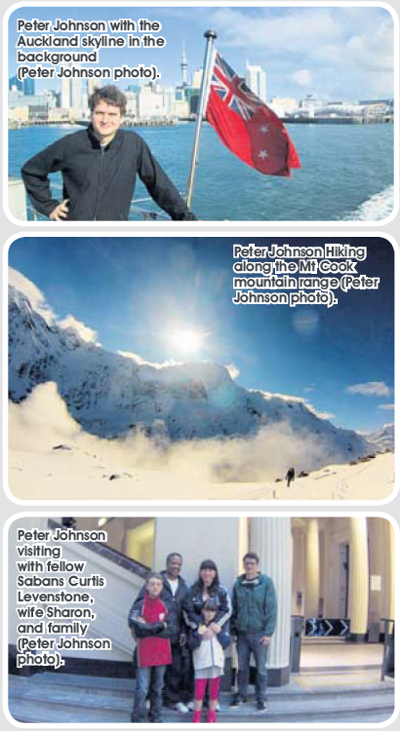Saba youth are at times negatively portrayed due to the frequency of course load postponements or even drop-out rates and cultural adjustment challenges faced when pursuing higher-education opportunities abroad.
The trend appears to be most pronounced in the Netherlands where anecdotal accounts speak of students choosing less-demanding subjects after realizing they are not prepared to handle both the academic requirements and those of an independent, balanced lifestyle. The language barrier for the English-speaking Sabans is only part of the story. Students with family ties in the Netherlands appear to do better, an indication that if student support services there would improve, students’ academic performance would follow.
It is easier to assume that the Caribbean youth lacks determination or is not as intellectually endowed as their European peers. Their good academic results in their secondary school on Saba go against that assumption. The resilience of Saba students facing odds stacked against them is little known so The Daily Herald seeks to reach out to Saba youth and listen to their story. There are instances when Saba students are provided the right environment and thrive.
Peter Johnson is only one of Saba’s ambitious young students and a success story. He is already an electrical engineer in the process of finishing up this upcoming December his Master’s degree with Virginia Commonwealth University in Richmond, United States. While in past years he spent his summers working and volunteering on Saba, this year he won a research fellowship to study in New Zealand. He applied for and won the East Asia and Pacific Summer Institutes (EAPSI) fellowship offered by the US National Science Foundation (NSF) for U.S. graduate students. The fellowship, extended for graduate students who seek first-hand research experiences in the region, encourages applicants to study the science, policy, and scientific infrastructure of the respective location in a comprehensive way. The research includes an understanding of the local society, culture and language aspects vital in the researchers’ often international careers.
Johnson says he chose New Zealand because of its rich geothermal history and unique culture and beautiful environment. He did not wish to expand on the tantalizing parallel between Saba’s similar remoteness and geothermal energy potential. The NSF and the Royal Society of New Zealand have a joint venture, but Johnson had to find on his own a host researcher and institute for himself. He was welcomed by Professor Mike O’Sullivan at the University of Auckland in the Engineering Science Department.
Under O’Sullivan’s direction, he spent nine weeks from June to August conducting work on the geothermal reservoir modelling group, which consisted of improving the accuracy of computer models of geothermal fields using various computer programs.
He also worked with University of Auckland research fellow Dr. Graham Ryan, involved in the geothermal geophysics exploration on Montserrat. Johnson: “I am not sure of my career plans yet, but the goal is to return to the region to help expand the renewable energy field.” Concentrating on making the most of the opportunity, he participated in a week-long field-trip, visiting several large geothermal power plants, drilling rigs, and taking part in lectures by various experts in the geothermal field.
New Zealand with its hills and black-sand beaches turned-out to be a familiar environment for Johnson. While in New Zealand, he says he was constantly reminded of home (Saba), as the people were friendly and inviting, and their level of commitment to the environment, through forest and native species conservation, was superb. Enjoying a good challenge, he took advantage of the winter time in the hemisphere and went mountain-climbing with friends near Mt. Cook, climbing at 6,500 feet to experience the stunning views of 2,000-foot cliffs and distant avalanches. “It was the coldest, scariest, and most thrilling thing I’ve ever done.”
He did not want to express his thoughts on the achievements of his Saba peers, on their determination to get out of their comfort zone and to experience life beyond Saba’s shores. He is concentrating on making the most of his opportunities abroad, a coming of age story familiar to many generations of Sabans seeking to prove themselves in other countries while caring for those back home. While in New Zealand, he met with Sharron and Curtis Levestone and he confessed, “It was a great feeling meeting Saba people on the other side of the world.” This was written in The Daily Herald’s Weekender.

 Archive of posts from Saba-News.com Archive Saba News
Archive of posts from Saba-News.com Archive Saba News